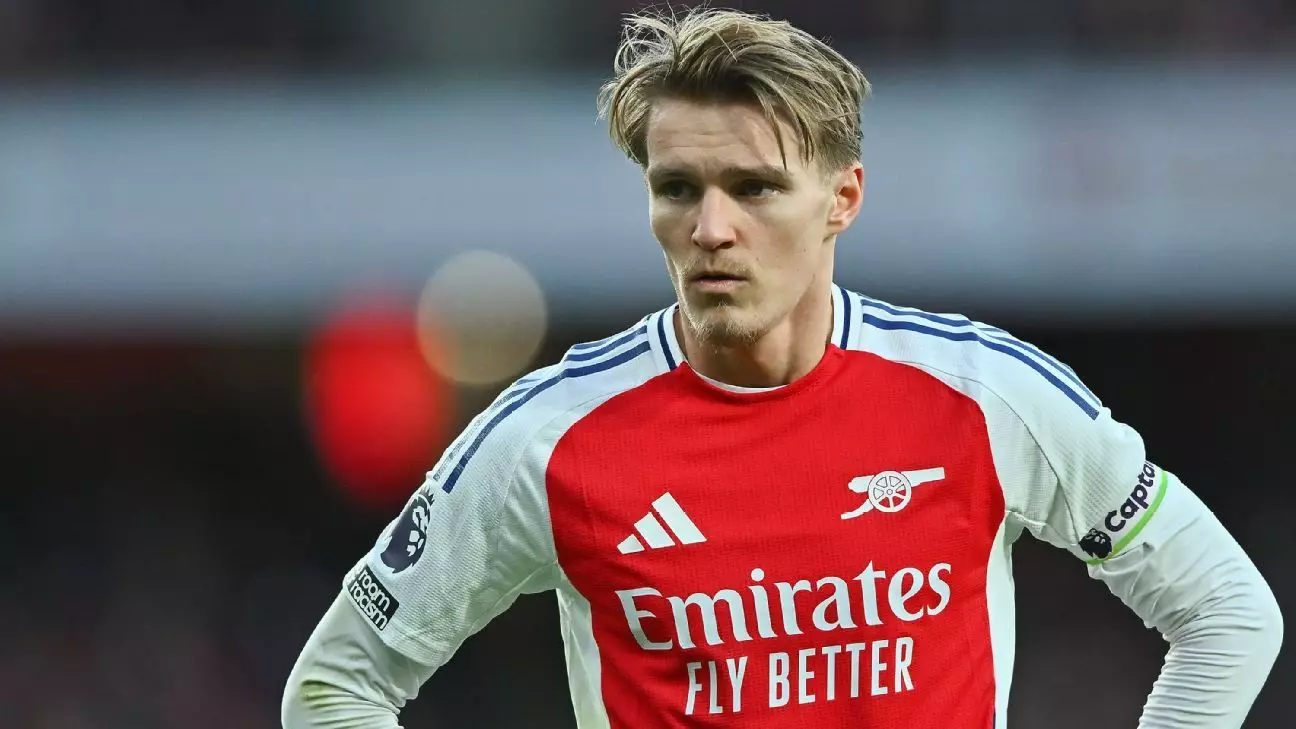In a hard-fought match that ended in a 0-0 stalemate against Everton, Arsenal manager Mikel Arteta faced criticism for his decision to substitute captain Martin Ødegaard. The Gunners, who were desperately seeking a winning goal at the Emirates Stadium, found themselves stifled by an organized Everton defense. Ødegaard’s exit in the 62nd minute, in favor of teenager Ethan Nwaneri, raised eyebrows and sparked debates about the strategic thinking behind such a bold move.
Arteta was quick to clarify that the substitution was made purely for tactical reasons. He explained that the aim was to inject a different rhythm into the game and suggested that Ødegaard’s absence was designed to refresh the attacking lineup. “With Martin, it was a tactical decision to change their rhythm on that side,” Arteta stated. This insight into his thought process revealed the fine line managers tread between faith in their established players and the necessity of adapting to the immediate circumstances of the match.
However, this decision invites scrutiny. While Arteta’s intention may have been to capitalize on Nwaneri’s youthful exuberance, replacing the team’s captain during a pivotal moment in the match raises questions about his assessment of player impact and momentum. The outcome of the match may have been different had Ødegaard remained on the pitch, continuing to orchestrate play and inspire those around him.
The removal of Ødegaard didn’t happen in isolation; it was part of a double substitution that also included Declan Rice, who was reportedly nursing a minor fitness issue. Arteta’s choices reflect the juggling act of managing player health and performance levels in a demanding season. The manager acknowledged the challenges, stating, “At the end, this is football—the hardest thing is to do what we have to do in those last 20-25 minutes.” This highlights the reality that decisions made during games often come down to short-term tactical adjustments rather than long-term strategic plans.
Yet, the broader implications for team dynamics can’t be overlooked. Substituting a captain may inadvertently signal a lack of confidence in the squad’s abilities. Ødegaard, as a leader, plays a crucial role not just in execution but also in motivating his teammates. His exclusion from such a pivotal moment might undermine the collective confidence, impacting subsequent performances.
As Arsenal faces the threat of falling further behind in the league standings, particularly with Chelsea in striking distance, Arteta must strike a balance between making necessary tactical shifts and maintaining team morale. The question remains: Can a young player like Nwaneri really fill the gap left by an influential leader in the fray? The true test will emerge as the season progresses, and whether Arteta’s decisions bear fruit or lead to costly missed opportunities.
Ultimately, understanding the nuances of managerial decisions, especially in high-pressure situations, is vital for both fans and analysts as they evaluate the path forward for Arsenal. Arteta’s tactical choices may define not only the current season but also the future direction of the club.

